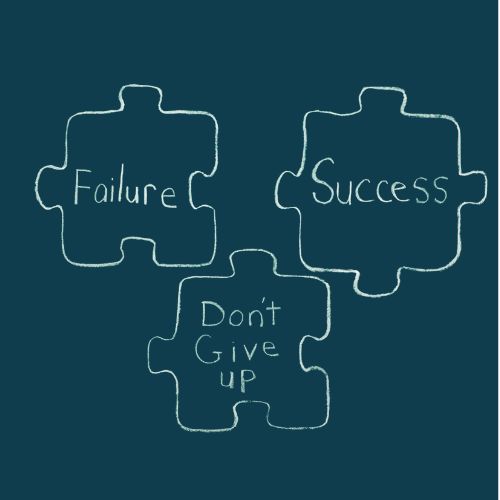
The Importance of Early Childhood Education in Cognitive Development
Early childhood education (ECE) plays a crucial role in shaping a child’s cognitive development, providing the foundation for lifelong learning and success. During the early years, the brain undergoes rapid development, making this period critical for establishing key cognitive skills such as language, memory, problem-solving, and attention. High-quality early education can have lasting impacts on a child’s ability to learn and adapt throughout their academic and professional life. This post will explore the importance of ECE in fostering cognitive growth and the benefits it brings to children’s development.
1. Building a Strong Cognitive Foundation
Overview: Cognitive development refers to how children think, explore, and figure things out. It involves processes such as memory, reasoning, problem-solving, and understanding language. Early childhood education is instrumental in helping children develop these skills during their most formative years.
How It Helps:
- Language Development: ECE programs expose children to rich language experiences through stories, songs, and conversations, helping them build vocabulary and communication skills.
- Memory and Attention: Activities like storytelling, games, and structured play help enhance memory retention and teach children how to focus their attention on tasks.
- Problem-Solving: Early education encourages children to think critically and solve problems through hands-on activities like puzzles, building blocks, and interactive play.
Key Benefit: ECE provides a structured environment where children can build essential cognitive skills that serve as the foundation for later academic success.
2. Enhancing Social and Emotional Skills
Overview: Cognitive development is closely linked to social and emotional growth. Children who develop strong cognitive skills are better equipped to navigate social interactions, regulate their emotions, and form meaningful relationships. Early childhood education promotes both cognitive and social-emotional development.
How It Helps:
- Collaboration and Teamwork: In group settings, children learn to work together, share, and communicate effectively with peers, fostering social understanding.
- Emotional Regulation: Through guided play and teacher interaction, children learn how to manage emotions like frustration, excitement, and disappointment, which are key to cognitive control.
- Self-Confidence: Positive reinforcement in early education settings helps children gain confidence in their abilities, allowing them to take on new challenges with a growth mindset.
Key Benefit: ECE helps children develop social and emotional skills that enhance their ability to think critically, focus on tasks, and collaborate with others.
3. Supporting Executive Function Development
Overview: Executive function refers to the mental skills needed to plan, focus, remember instructions, and manage multiple tasks. These skills are essential for cognitive development and are strongly supported by early childhood education.
How It Helps:
- Planning and Organizing: Activities that require children to follow steps or instructions help them develop the ability to plan and organize tasks.
- Impulse Control: Through structured play and classroom routines, children learn to control impulses, wait their turn, and follow rules.
- Cognitive Flexibility: ECE promotes flexibility in thinking by encouraging children to approach problems from different angles and adapt to new situations.
Key Benefit: ECE programs provide experiences that foster the development of executive functions, enabling children to think ahead, manage their time, and solve problems effectively.
4. Fostering Creativity and Imagination
Overview: Cognitive development is not limited to logical thinking and problem-solving; creativity and imagination are also key components. Early childhood education encourages creative thinking by providing an environment where children can explore their ideas and imaginations.
How It Helps:
- Creative Play: Activities like drawing, painting, storytelling, and pretend play stimulate a child’s imagination and encourage creative thinking.
- Exploring Different Perspectives: ECE encourages children to see the world in new ways, whether through role-playing or interactive learning experiences, helping them think outside the box.
- Innovation: By allowing children to experiment with different materials and approaches, early education nurtures innovative thinking and curiosity.
Key Benefit: Creativity and imagination are essential for cognitive growth, and ECE provides the tools and space for children to explore their creative potential.
5. Long-Term Academic Success
Overview: The cognitive skills developed in early childhood education directly impact a child’s long-term academic success. Studies have shown that children who attend high-quality early education programs are more likely to succeed in school, graduate from high school, and pursue higher education.
How It Helps:
- School Readiness: ECE prepares children for the academic challenges they will face in kindergarten and beyond, particularly in areas such as literacy and numeracy.
- Critical Thinking: The problem-solving skills learned in early education help children approach academic subjects like math, science, and reading with confidence.
- Adaptability: Children who have been exposed to a wide range of learning experiences in early education are more adaptable and open to new concepts as they progress through school.
Key Benefit: Early childhood education lays the groundwork for academic achievement by equipping children with the cognitive skills needed to succeed in school.
6. Addressing Cognitive Developmental Gaps
Overview: Early childhood education plays a vital role in identifying and addressing developmental delays or learning challenges. ECE programs offer early intervention, which can help prevent or mitigate cognitive delays and ensure all children have the opportunity to thrive.
How It Helps:
- Early Identification: Trained educators in ECE settings can identify early signs of developmental delays in areas such as speech, motor skills, or social interaction.
- Tailored Support: Once identified, children with developmental gaps can receive targeted support, such as speech therapy or specialized learning plans, to address their unique needs.
- Inclusive Learning: ECE promotes inclusive education, ensuring that all children, regardless of their developmental stage, receive the attention and resources needed for cognitive development.
Key Benefit: ECE ensures that children with developmental challenges receive early support, enabling them to reach their cognitive potential and reducing long-term academic disparities.
7. Cultivating Lifelong Learning Habits
Overview: Early childhood education instills a love for learning and curiosity, which can shape a child’s attitude toward education throughout their life. By nurturing positive learning experiences early on, ECE fosters habits that contribute to lifelong cognitive development.
How It Helps:
- Curiosity and Exploration: ECE encourages children to ask questions, explore new ideas, and develop a passion for learning that carries into later academic years.
- Self-Motivation: Children who experience the joy of discovery and achievement in early education are more likely to be self-motivated learners as they grow older.
- Adaptability: ECE nurtures adaptability, teaching children how to approach new challenges and persist in the face of obstacles, a key trait for lifelong learning.
Key Benefit: Early childhood education fosters a positive attitude toward learning, helping children develop the cognitive habits necessary for lifelong success.






